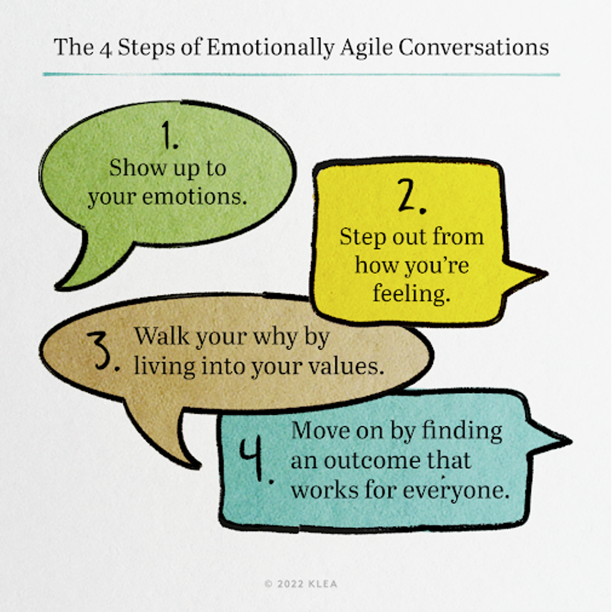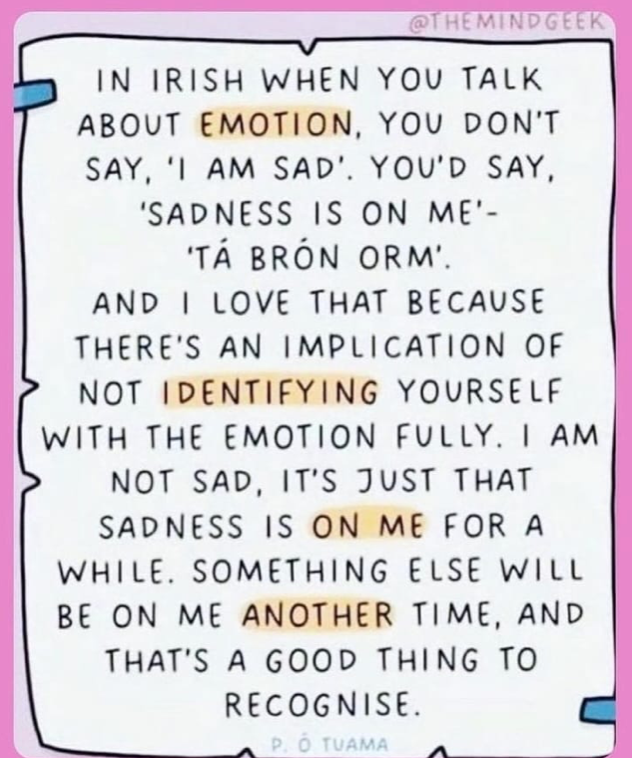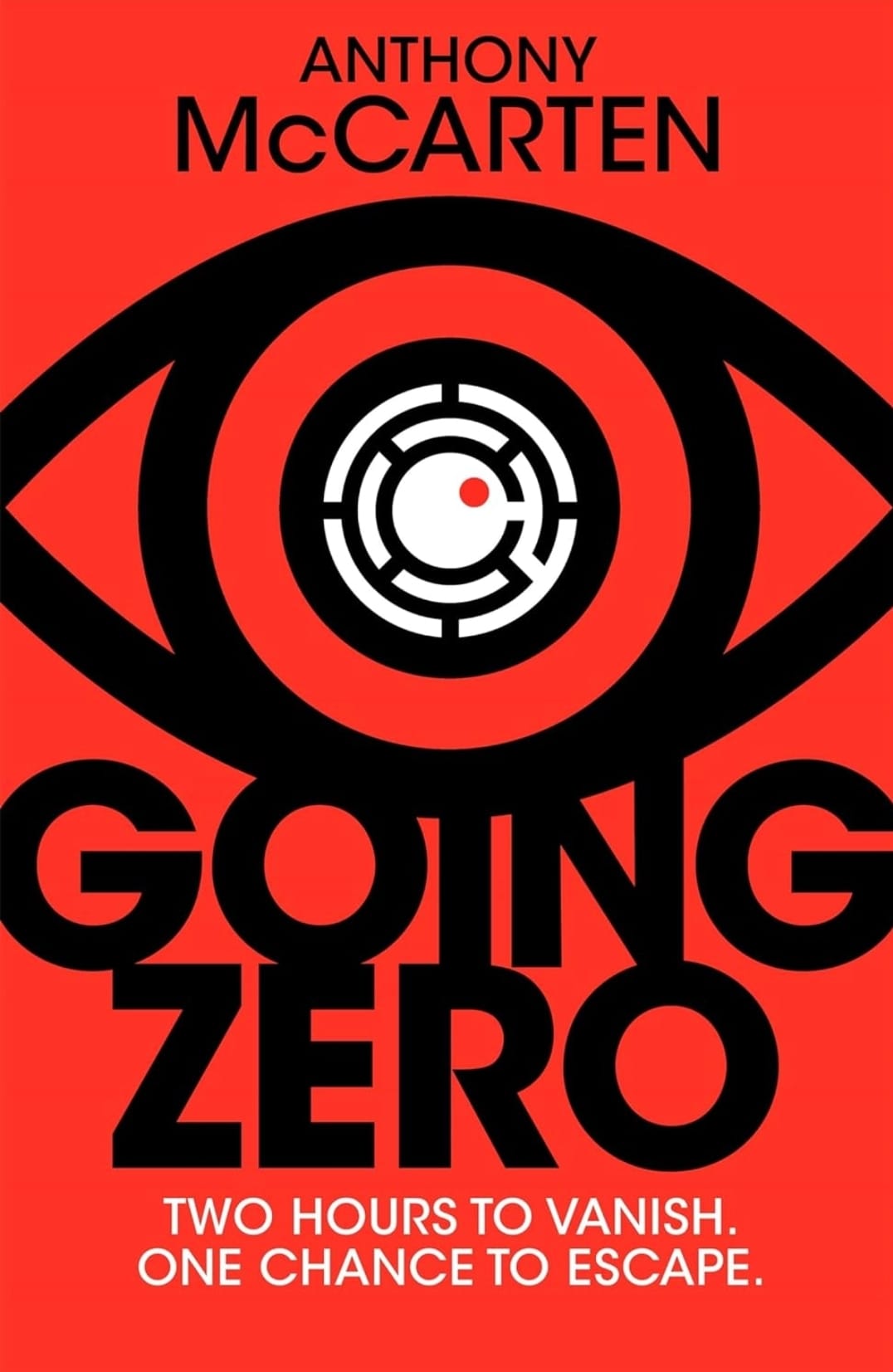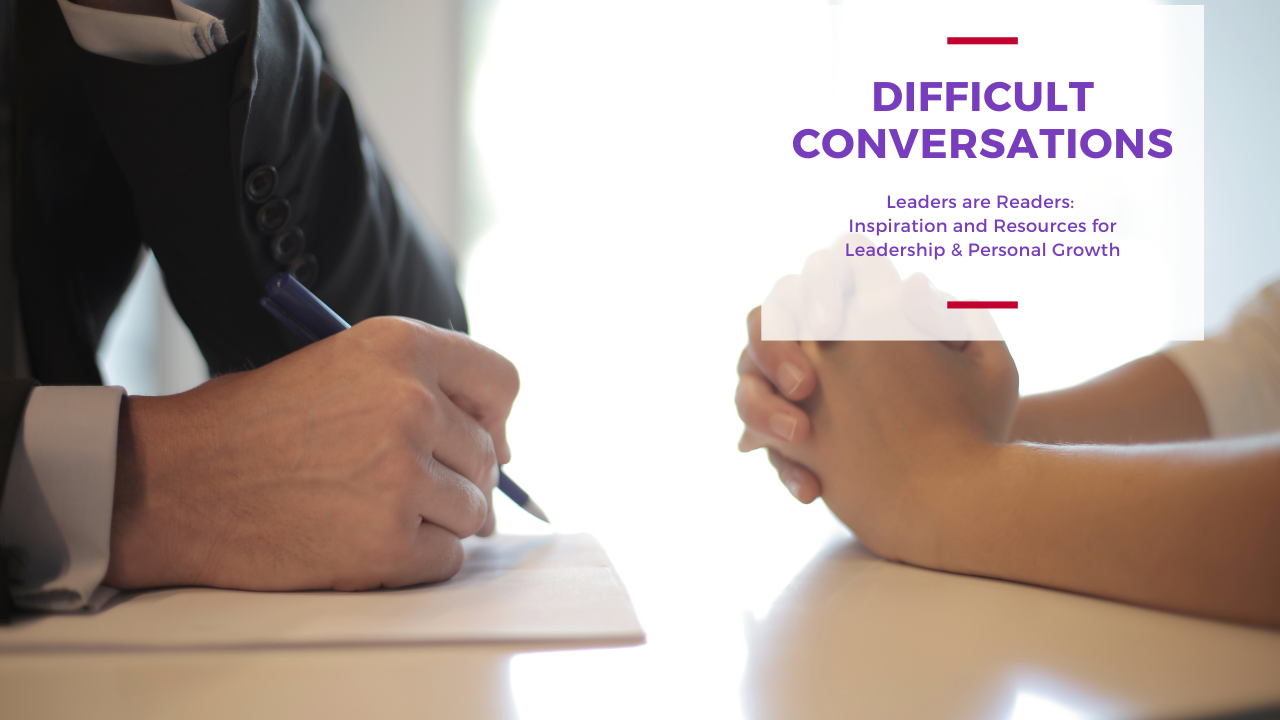Hello Friends!
It’s that time of year again – time for Performance Evaluations. Most companies seem to use the time between September and December to finalize their fiscal years, and that always leads to the annual performance review.
Although I don’t get a performance evaluation from my boss (she’s lovely but since we’re the same person, I get an ongoing monologue rather than a review 😉), I myself have had a few challenging conversations lately. And I realized that although I think I’m pretty good at initiating a difficult conversation, I may not be as good at them when I’m unprepared.
So let’s explore Difficult Conversations together, and see if we can discover a few best practices that might ease that disquieting feeling of one’s equilibrium being shaken, shall we? 😊
EMOTIONAL AGILITY….
Susan David is the authority on having effective conversations. I’m currently doing her Emotional Agility for Wellbeing at Work course and it is brilliant! So much wisdom in such an easy-to-understand format!
One of my favourite micro skills from the course has been that on having challenging conversations:
“Even the most emotionally agile among us can sometimes struggle to put what we’re feeling into words in order to have important conversations.
We need to be able to go to our emotions – understanding and processing them – but we also need to know how go through our emotions: to apply emotional agility to our behaviours and actions.
Effective conversations require both.”
So often we are thrust into difficult conversations and devolve quickly into react mode, rather than response. The real skill here is to have the wherewithal to actually be able to pause and identify your emotions in that moment, so you can choose how to respond, rather than react.
For David, there are four key steps to having emotionally agile conversations:

I think for many of us – certainly for me – the challenge is #2: stepping out from how you’re feeling. That’s another way of saying, reSPOND, don’t reACT. Take a moment to think about what the aim of the conversation is, and choose how you want to proceed.
David also advises not conflating yourself with your emotions. She points out that we often say things like “I am stressed” or “I am angry”, which actually indicates to your brain that your whole persona is stress or anger. She suggests reframing your emotions as a temporary feeling. So instead of “I am stressed”, try, “I am noticing that I am feeling stressed”.
And it looks like Gaelic even has that built right into the language:

FOPO – FEAR OF PEOPLE’S OPINIONS…
I love a good acronym! A new one to me is FOPO: Fear of People’s Opinions.
I heard this in one of my favourite podcasts, The Long and the Short of It. In episode 234 “Difficult Conversations”, Jen hypothesizes that FOPO “is at the center of everything. I’ve actually landed on that, as humans, we have two primal fears: the fear of death and the fear of people’s opinions. And that like, everything else stems from that.”
Is fear of people’s opinions what is really causing us to have difficult conversations? Could well be!! As Jen goes on to say, “difficult conversations create change, and it’s easier to stay the way we are.” That’s certainly true!
So are we avoiding having difficult or potentially challenging conversations in order to avoid change?
DOING IT BETTER…
As James Clear so aptly puts it: “Odds are, the latest debate or family squabble isn’t worth winning. Most arguments are only tangentially related to your end goal. What outcomes are you actually trying to create?”
With that in mind, let’s dive into the E.A.R.S. Framework for having difficult conversations!
This also came from the Long and the Short of It podcast, and is Pete’s framework. E.A.R.S. stands for:
Empathize
Ask questions
Reflect back
State our position (how we want to move forward)
As Pete says, “in any given difficult conversation, we want to empathize. We want to ask questions. We want to reflect back what we’ve heard. And we want to kind of state our position and how we want to move forward.”
Adam Grant has a similar framework [but without the fancy acronym]. He suggests having effective conversations is about changing how you think [and if you haven’t read his book “Think Again: The Power of Knowing What You Don’t Know” – it’s well worth the read!]:
- 1. Start by imagining living another person’s life.
- 2. Ask how people’s views have evolved
- 3. Ask “tell me what I’m missing”
- 4. Begin with the problem, not the solution.
It’s about having – as Julia Dahr calls it in her TED Talk on How to Have Constructive Conversations – “Curiosity Conversations”. The stand out idea in this talk for me was this question:
“I never thought about it exactly that way before. What can you share that would help me see what you see?”
Isn’t that brilliant? Not accusatory. Not reactive. Not judgemental.
Instead it’s open. Curious. And trying to understand the other person’s perspective.
Genius.
THE LIST…
I love a good list. I’ve got lists (or even better, colour-coded spreadsheets 😉 ) for just about everything.
And this list of 53 great questions to help you navigate difficult conversations is epic!
If you need a bit of help coming up with the mindset of curiosity, or just need a bit of stimulus to have a curious conversation, these questions are a treasure trove!
WHAT I’M READING…
I love a good thriller. I’m not super tech-y but I do find the whole algorithm/interwebs tracking you to be a pretty believable source of tension to a story, and so when a friend told me she was riveted by Going Zero by Anthony McCarten, I thought it sounded like a story for me.
And it did not disappoint! The story is of a contest where 10 people have the chance to win $3 million if they can go off the grid and remain undetected for 30 days against a new cutting-edge spyware called Fusion. One contestant, Kaitlyn Day, a Boston librarian manages to elude capture longer than the rest – because she’s got a Big Reason to stay unfound.
It’s a fun, entertaining, quick read. There’s no violence, no one dies, and it’s a fast-paced and enjoyable story. Perfect for curling up and binge-reading on a blustery, wet November weekend!

I can hardly believe it’s almost the end of November. Where has this year gone?!? Our next newsletter is scheduled for December 8th and will be the last one of the year! Looking forward to doing the annual Year in Review with you next month!
Hope your conversations are emotionally agile, curious, and full of questions.
Be emotional. Stay healthy.
Hugs,



